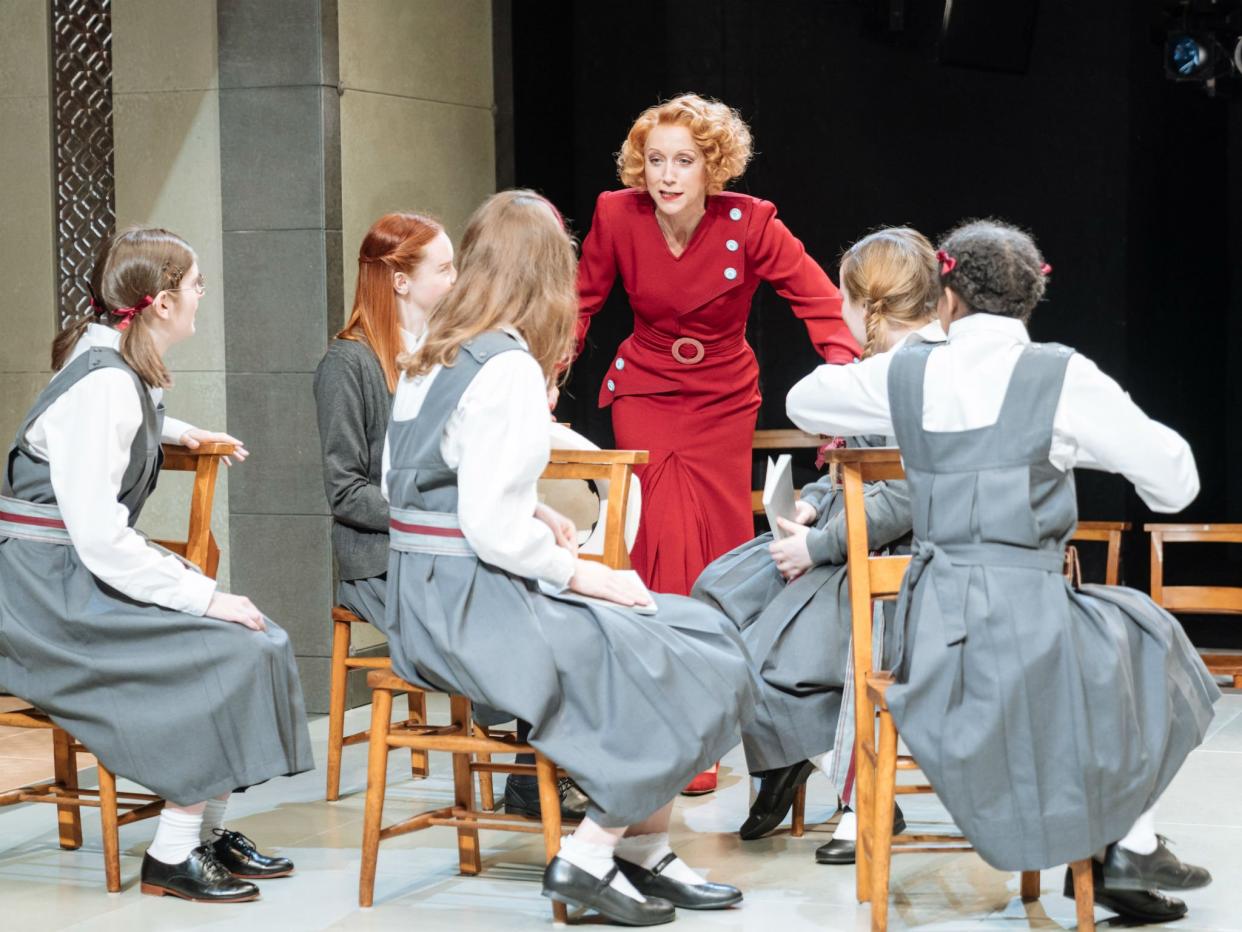The Prime of Miss Jean Brodie, Donmar Warehouse, London, review: Lia Williams is revelatory in this new Muriel Spark adaptation

★★★★☆
Lia Williams is revelatory in the title role in this new David Harrower adaptation of Muriel Spark's brilliant novel.
This is no small claim. Look at the roll call of great actresses who have incarnated Jean Brodie, the dangerously influential teacher in 1930s Edinburgh who inspires and destroys the young girls in her charge. Vanessa Redgrave starred in the the first London stage version in 1966 and three years later the screen version won Maggie Smith a deserved Oscar. We've had Geraldine McEwan on television and Fiona Shaw and Patricia Hodge in the theatre.
Williams strides from their shadow with a portrayal that arouses more complexly than any I have seen the ambivalence we feel towards this elusive figure who is at once magnificent and ridiculous, formidable and vulnerable, richly comic and yet destined for a tragically isolated end.
Bells resound, summoning girls to class and nuns to the cloister, throughout Polly Findlay's fluent production, which conflates the Marcia Blaine School and the convent where Sandy – the favourite who betrayed Brodie – is, in this version, on the eve of taking the veil.
Harrower has scrapped the clunky framing device in Jay Presson Allen's much-used adaptation (American journalist invites the fully fledged Sister Helena to talk about her school days years later) and substituted a more dynamic one of his own. Rona Morison's excellent Sandy is imagined to have written a psychology best-seller and a local reporter comes to the convent to interview her about her ideas regarding influence, the cryptic dedication (“For J”), and whether the momentous step she is about to take is punishment or liberation.
It's a testy encounter and allows for instantaneous switches between Sandy, the star pupil, and Sandy, the novice nun whose path is determined in perhaps more ways than one
More successful is the new sub-plot that keeps track of the splintering friendship between Sandy and the wretchedly needy Joyce Emily whose shy, worshipful overtures are roughly spurned when Sandy becomes one of Brodie's “creme de la creme”. Nicola Coughlan makes it achingly plausible that the girl's desperation to belong would send her out to the Spanish Civil War in order to impress a teacher whose need to experience female heroism vicariously should come with a health warning.
Most actresses go in for a lot of loud fluting when playing the title character. Williams' Brodie compels attention with a seductive Morningside purr that has you craning forward to hear every deadly inflection in those hilarious put-downs (“Syntax finds no friend in Miss Mackay”).
She says that she is cashmere to the headmistress's granite. But that's not quite the fabric you think of when you look at her carefully calculated ensemble: scarlet from top to toe, with a tiara of Marcel-waved strawberry blonde hair. She talks and moves with an assurance that she will fascinate. No wonder the girls are agog at her talk of foreign holidays, favourite Italian painters, a fiance fallen in war, and, oh yes, the revered Mussolini.
At the same time, flickering insecurities trouble this flamboyant poise. You see her having to suppress these when favourites start to distance themselves from the cult-like loyalty she demands in her mini-Mussolini way. There's a mad gleam in her eye when she adamantly insists that Joyce died fighting for Franco, rather than against him as was patently the case.
A very funny performance achieves tragic stature when Williams shows you a pale, painfully reduced Brodie, sacked long ago and dying of cancer, clutching desperately at memories of her prime in the classroom. A beautifully cast revival (with Angus Wright and Sylvestra Le Touzel on particularly fine form) and a distinct vindication of the Donmar's decision to revisit this not unfamiliar piece.
Until 28 July (donmarwarehouse.com)


